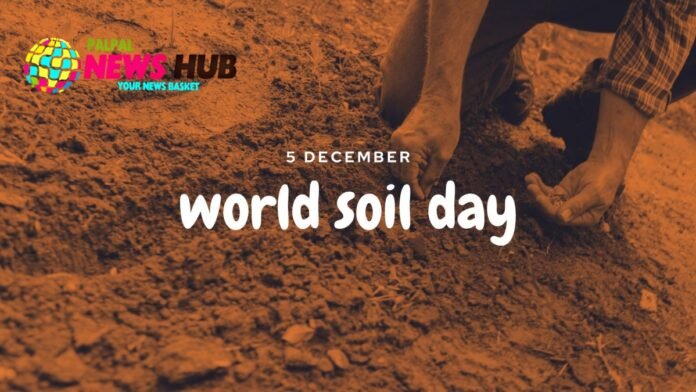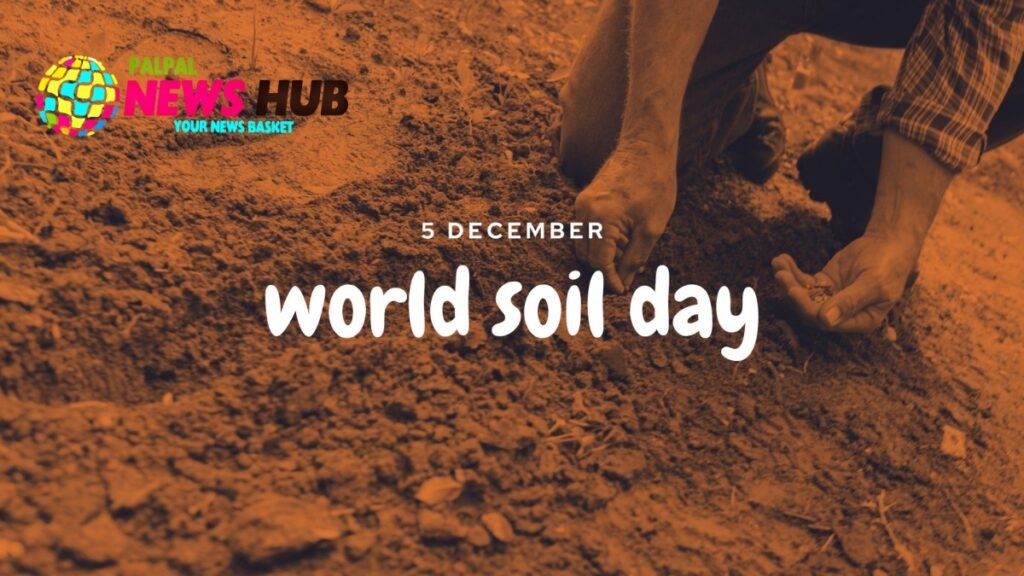
New Delhi: World Soil Day is an annual event that is celebrated on 5 December to highlight the significance of soil as a natural resource for life on Earth. Soil is the upper layer of the earth that supports the growth of plants and animals. Soil is also known as the “skin of the earth” or the “living skin” because it is a complex and dynamic system that contains organic matter, minerals, water, air, and microorganisms.
Why is World Soil Day celebrated?
World Soil Day was initiated by the International Union of Soil Sciences (IUSS) in 2002 to draw attention to the challenges and opportunities of soil management. In 2013, the United Nations General Assembly unanimously declared 5 December as World Soil Day, following a proposal by the Food and Agriculture Organization (FAO) of the United Nations. The date was chosen to honour the birthday of the late King of Thailand, HM Bhumibol Adulyadej, who was a champion of soil conservation and development.
What is the theme of World Soil Day 2023?
The theme of World Soil Day 2023 is “Soil Biodiversity: The Foundation of Life”. The theme aims to raise awareness about the diversity of life forms that inhabit the soil and their vital roles in maintaining soil health and fertility. Soil biodiversity refers to the variety of organisms that live in the soil, such as bacteria, fungi, protozoa, nematodes, insects, worms, and plants. These organisms interact with each other and with the soil environment to perform various functions, such as decomposing organic matter, recycling nutrients, regulating water flow, enhancing soil structure, and controlling pests and diseases.
What are the benefits of soil biodiversity?
Soil biodiversity provides many benefits for humans and the environment, such as:
- Improving crop productivity and food security by increasing soil fertility and nutrient availability
- Mitigating climate change by storing carbon and reducing greenhouse gas emissions
- Protecting water quality and quantity by filtering pollutants and enhancing water infiltration and retention
- Preserving natural and cultural heritage by hosting a large number of endemic and rare species and supporting traditional knowledge and practices
- Supporting human health and well-being by providing sources of medicines, cosmetics, and other products
What are the threats to soil biodiversity?
Soil biodiversity is under threat from various human activities, such as:
- Land use change and degradation by deforestation, urbanization, mining, and overgrazing
- Soil pollution by chemicals, plastics, metals, and radioactive materials
- Soil erosion by wind and water
- Soil compaction by heavy machinery and livestock
- Soil salinization by irrigation and seawater intrusion
- Soil acidification by acid rain and fertilizers
- Soil warming by global warming and fires
- Soil loss of organic matter by intensive tillage and monocropping
How can we conserve and enhance soil biodiversity?
There are many ways to conserve and enhance soil biodiversity, such as:
- Adopting sustainable soil management practices, such as organic farming, agroforestry, conservation agriculture, and integrated pest management
- Restoring degraded soils, such as by reforestation, revegetation, and biochar application
- Reducing soil pollution, such as by using biodegradable and eco-friendly materials, and disposing of waste properly
- Promoting soil awareness and education, such as by celebrating World Soil Day, participating in citizen science projects, and supporting soil research and innovation

World Soil Day is a day to celebrate the importance and conservation of soil as a vital natural resource for life on Earth. Soil is home to a rich and diverse community of organisms that perform essential functions for soil health and fertility. Soil biodiversity also provides many benefits for humans and the environment, such as improving food security, mitigating climate change, protecting water resources, preserving natural and cultural heritage, and supporting human health and well-being. However, soil biodiversity is under threat from various human activities that degrade and destroy the soil. Therefore, we need to take action to conserve and enhance soil biodiversity by adopting sustainable soil management practices, restoring degraded soils, reducing soil pollution, and promoting soil awareness and education. By doing so, we can ensure the future of soil and life on Earth.







































